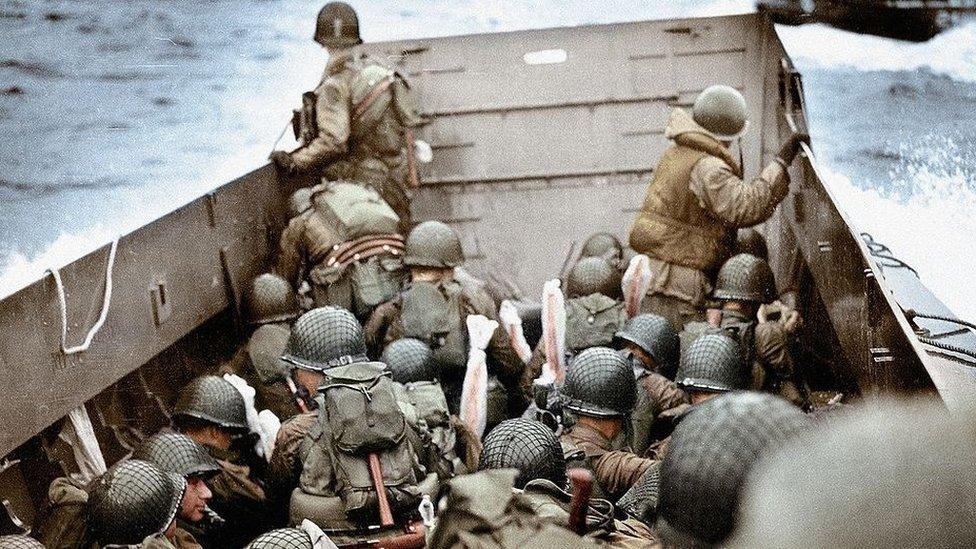Memories of D-Day from one of the last surviving WW2 veterans
Veteran Jim Glennie speaks of his experience on the D-Day beaches
- Published
One of the last surviving veterans of the D-Day landings has been recalling the sacrifices of those involved in the largest air and sea invasion in history.
Jim Glennie was an 18-year-old soldier when he took part in Operation Overlord on 6 June 1944 to liberate Europe from Hitler's Nazi regime.
The veteran from Aberdeenshire said he put his survival to the age of 98 down to "sheer luck".
A series of commemorations are taking place this week to mark the 80th anniversary of the invasion.
Mr Glennie told BBC Scotland how he saw the body of a fallen soldier as he entered the water from a landing craft, but knew he had to carry on.
A week later he was injured and captured, eventually arriving in a prisoner of war camp on what was his 19th birthday. He will be 99 in August.

Jim Glennie was called up at the age of 18
When he was called up, Pte Glennie began his military service at the Bridge of Don Barracks in Aberdeen.
When Allied forces began landing on the beaches of Northern France on 6 June 1944, Pte Glennie, from Turriff, was with the Gordon Highlanders.
"I remember getting into the water, my two mates couldn't swim, they stuck to me like glue," he said.
"This body came up with the waves. I just carried on. You had to carry on, and that's what I did."
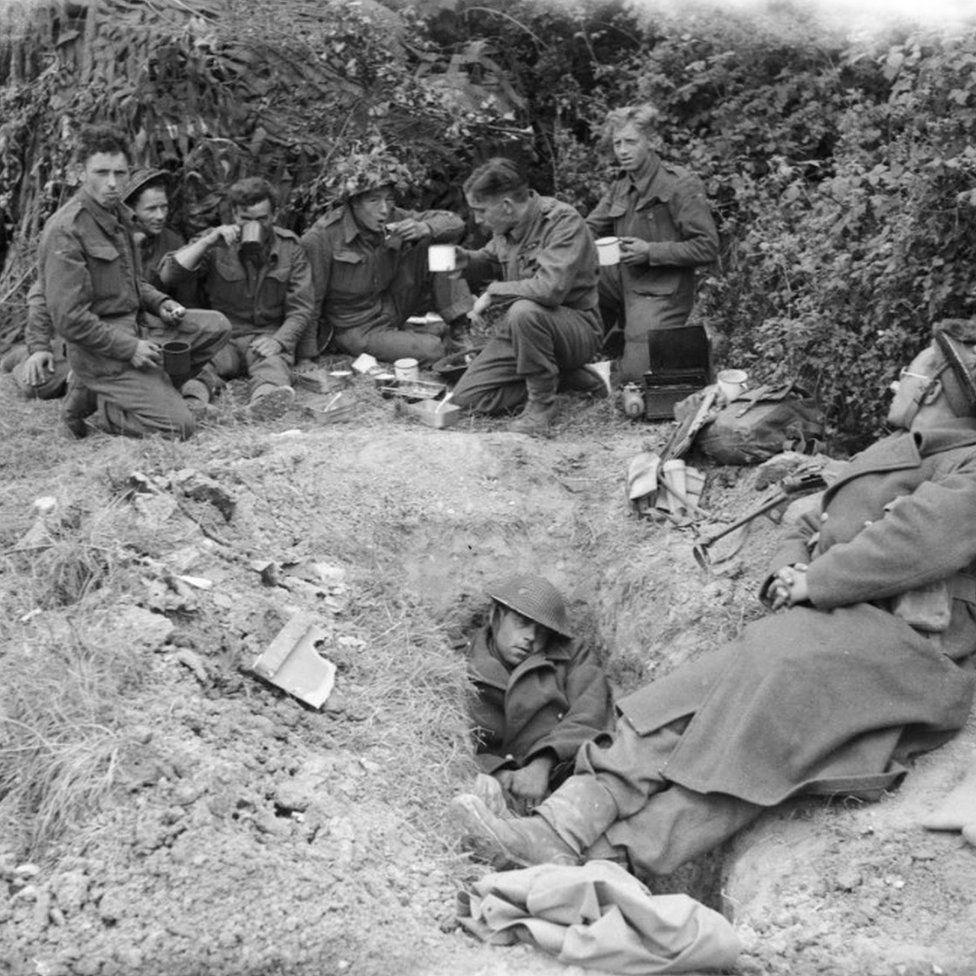
Jim Glennie is pictured kneeling in the middle, side-on, holding his white mug, during a brief period of rest
Amid heavy German resistance, Mr Glennie and comrades managed to advance inland.
Eventually he was shot in the arm, and was taken prisoner.
He ended up at Stalag IV-B - one of Germany's largest prisoner of war camps - on what was his 19th birthday.
He said food was "scarce" and that they were always hungry.
Asked what his secret to long life was, he said: "Just lucky I think.
"I feel I was a very lucky loon (boy), I was only 18."
He was asked how he remembers D-Day.
"I was just a soldier, he said. "It was an experience."
He was filling bomb holes as part of his prisoner duties when his German captors vanished in early 1945.
The camp was liberated, and he made his way to American forces before being taken home to his relieved family.
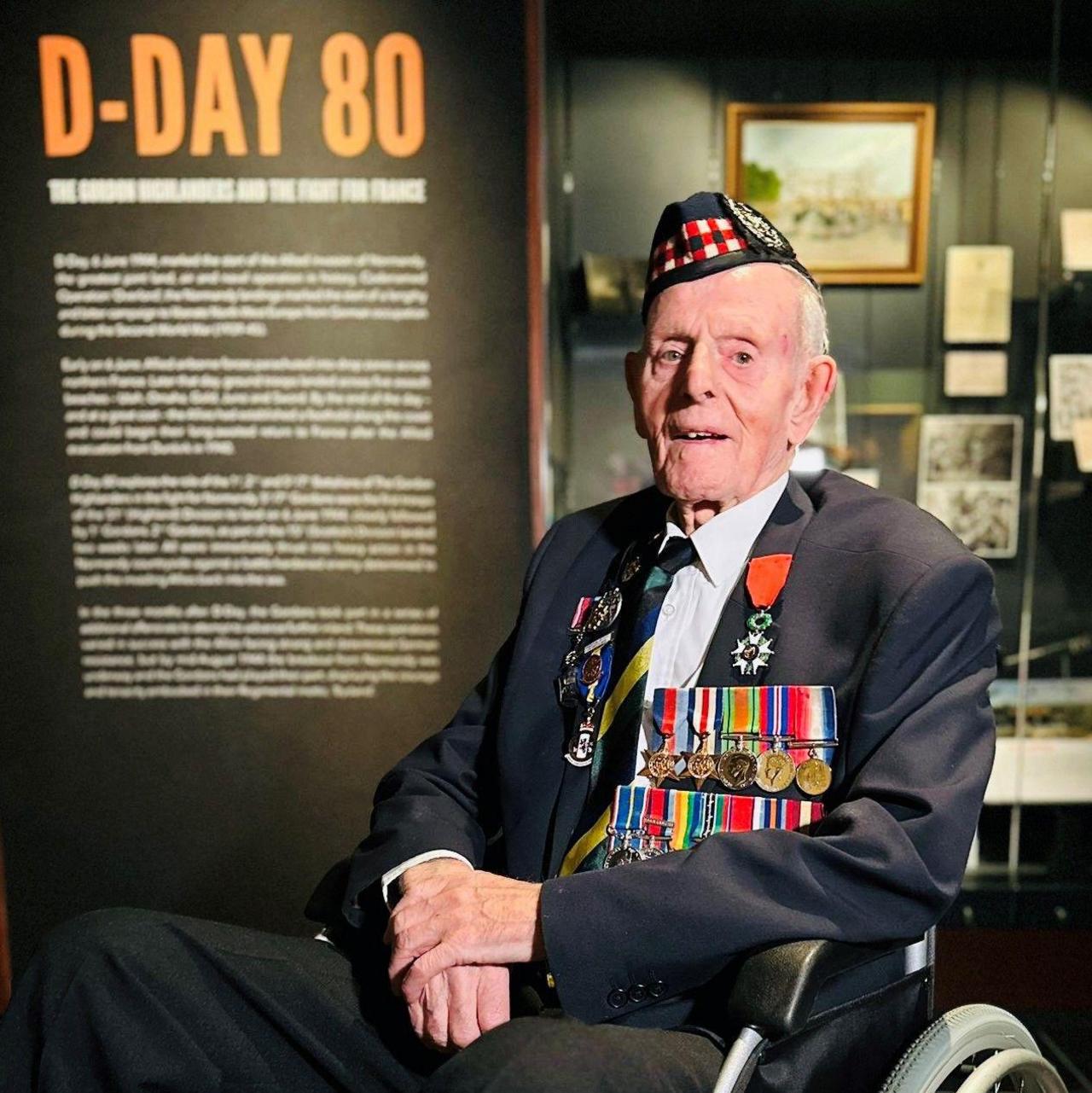
Jim Glennie wants future generations to remember the sacrifices made
Once Europe was liberated, he was due to deploy to Japan but the war ended before he was sent.
He later married and had two children.
He hopes future generations will remember the sacrifices which were made in the war.
"This day I'll never forget," he said.
Related topics
- Published5 June 2019
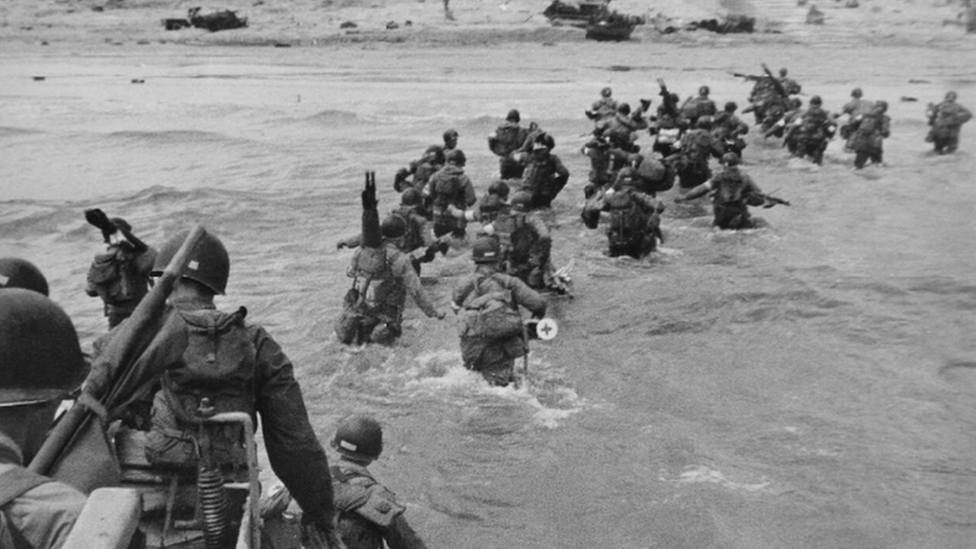
- Published24 January 2023
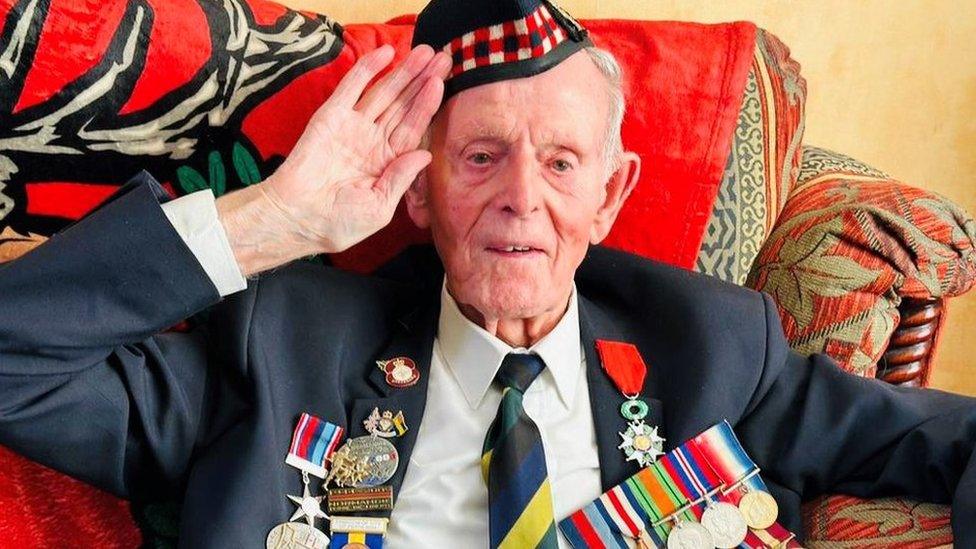
- Published1 June 2019
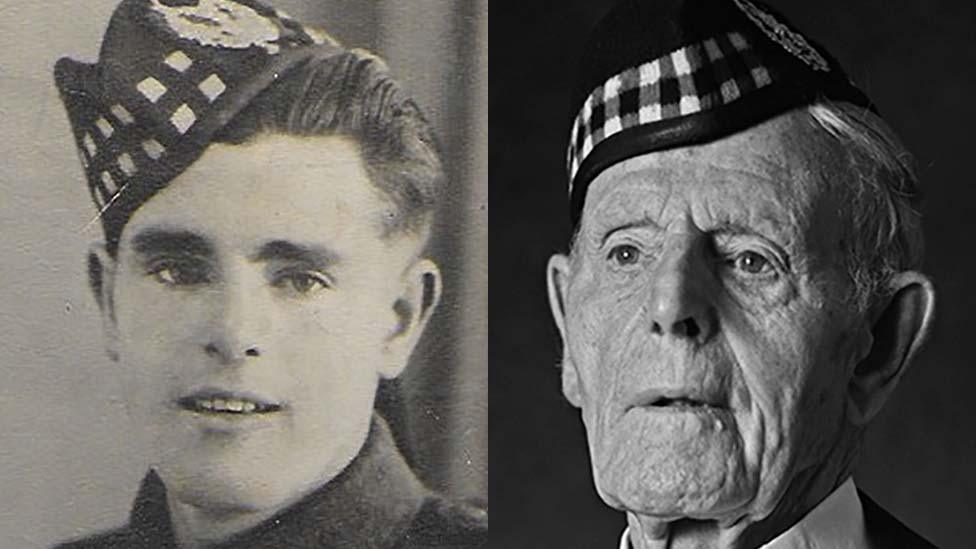
- Published6 June 2024
